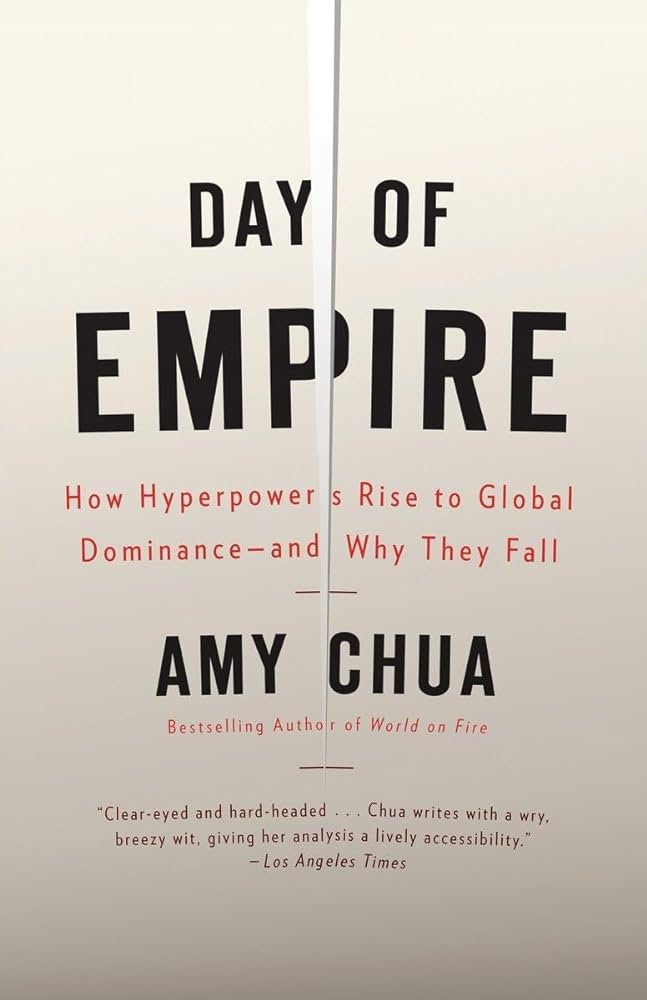Amy Chua is one of the most talented political scientists in Yale University. But her books like “World on Fire,” written in 2003, tend to be alarmist tracts. Globalization and the promotion of freedom and democracy are said to foster ethnic re-galvanization; whereas groups that cannot gain from all these elements will become defensive. Very soon, they will graduate from picket lines to political warfare and sabotage. There is a compelling logic to Amy Chua’s narrative, regardless of what the critics may say. Ethnic groups that have been left out by the process of globalization do unite; as witnessed in Latin America, where within the spate of ten years, various indigenous leaders in Valenzuela, Bolivia and Peru all popped up.
In “Day of Empire: How Hyperpowers Rose to Global Prominence and Why They Failed,” Amy Chua again adopted a rather simple approach. That it was the lack of multi-cultural elements and mutual tolerance that tore the “hyper powers” to shreds, from within. The issue is Amy Chua put all the elements of the fall on the human agency.
Yet, a low threshold of tolerance and diversit is both a human problem and a systemic/constitutional failure. If “hyper powers” do fail at the altar of global conquest, they first fail at the feet of bad legal planning. Without a legal system to protect the rights of all, even an empire like the United States cannot maintain its pre-eminence forever. Blacks are bound to go against the Whites; and the Whites will probably pick on the Asians to vent their hunger, without enmeshing themselves once against the West.
Amy Chua’s book is thus a celebration of “unity in diversity.” Without unity, all powers will collapse, as it struggles perennially to bring the different groups together

